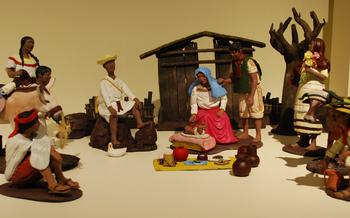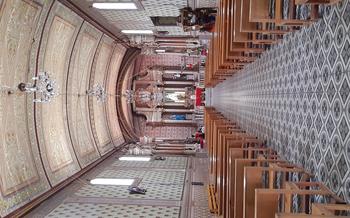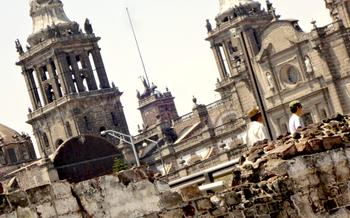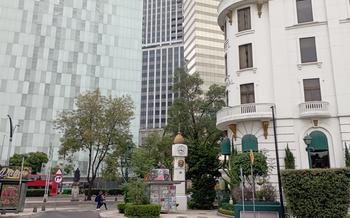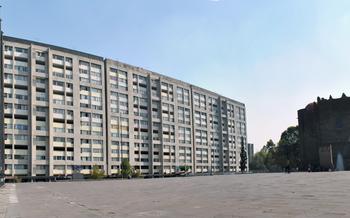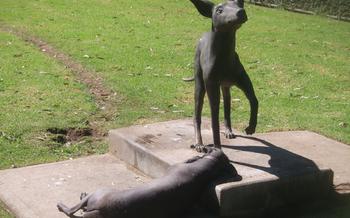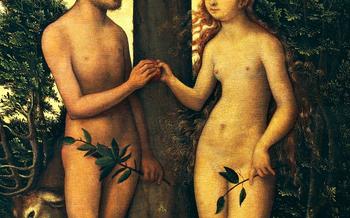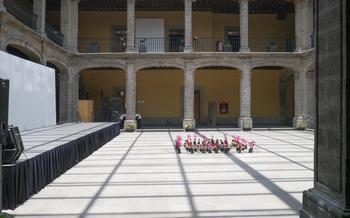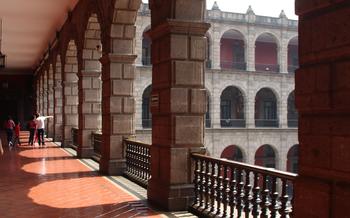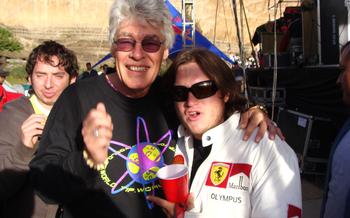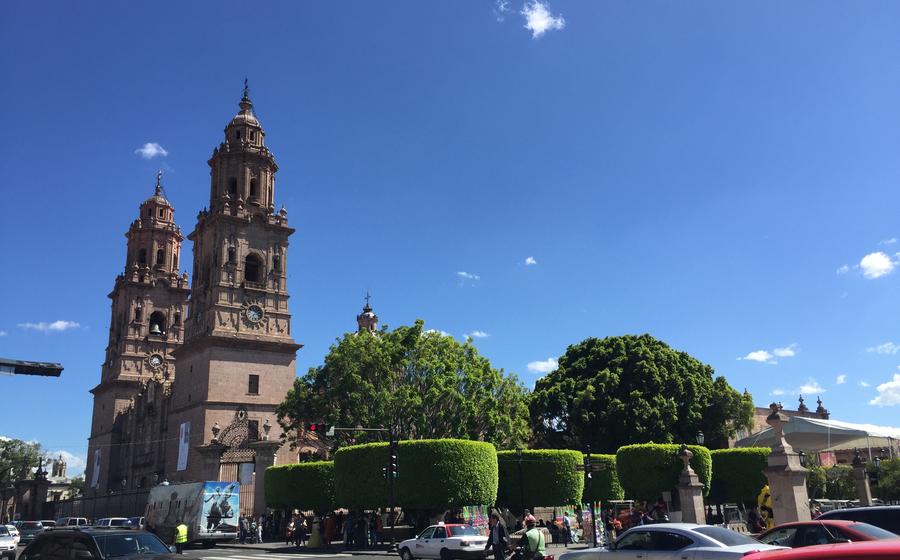
Museo de la Máscara en Pátzcuaro
- Museo de la Máscara en Pátzcuaro: A Cultural Immersion USD) for children and students with valid IDs. The museum offers guided tours in English and Spanish for a small additional fee, providing a deeper understanding of the mask-making traditions and the significance of the collection.
- Unveiling the Enigmatic World of Masks
- Exploring the Museum's Diverse Collection
- Witnessing the Magic of Mask Making
- The Mask as a Symbol of Transformation
- Celebrating the Day of the Dead: A Time for Masks and Ancestors
- The Legacy of Master Mask Makers
- The Mask and Mexican Identity
- Interactive Activities for Visitors
- Practical Tips for Visiting the Museum
- Unveiling the Mask's Role in Mexican Art and Literature
- The Mask in Mexican Cinema and Theater
- Exploring the Surrounding Region
- Supporting Local Artisans and the Mask-Making Tradition
- Insider Tip: The Best Time to Visit
Museo de la Máscara en Pátzcuaro: A Cultural Immersion USD) for children and students with valid IDs. The museum offers guided tours in English and Spanish for a small additional fee, providing a deeper understanding of the mask-making traditions and the significance of the collection.
Unveiling the Enigmatic World of Masks
The Museo de la Máscara en Pátzcuaro invites visitors on a journey into the mesmerizing world of masks, revealing their historical significance, cultural importance, and artistic expressions. From ancient times to the present era, masks have played a crucial role in Mexican culture, serving as powerful symbols in rituals, festivals, and everyday life.
Historical Significance
Masks have a rich history in Mexico, dating back to pre-Columbian times when they were used in religious ceremonies and rituals. These early masks often depicted deities, spirits, and animals, serving as intermediaries between the physical and spiritual realms. With the arrival of Spanish colonizers, new influences emerged, blending indigenous traditions with European aesthetics, resulting in a unique fusion of styles.
Cultural Importance
Masks hold deep cultural significance in Mexico, representing diverse identities, beliefs, and traditions. They are used in festivals and celebrations to honor ancestors, celebrate patron saints, and ward off evil spirits. Masks also play a vital role in traditional dances, theater performances, and storytelling, embodying characters and conveying emotions.
Artistic Expressions
The Museo de la Máscara showcases a vast collection of masks, demonstrating the extraordinary diversity of materials, techniques, and designs employed by Mexican artisans. From intricately carved wooden masks to vibrantly painted papier-mâché creations, each mask is a testament to the skill and artistry of its maker.
Exploring the Museum's Diverse Collection
The Museo de la Máscara en Pátzcuaro houses a diverse and captivating collection of masks, each telling a unique story about Mexico's rich cultural heritage. Embark on a journey through time as you encounter ancient artifacts from pre-Columbian civilizations, where masks played a crucial role in religious rituals and ceremonies. Discover traditional masks from various regions of Mexico, showcasing the diversity of cultural identities and the symbolism embedded in their intricate designs.
Admire contemporary interpretations of the mask, where modern artists push the boundaries of creativity and experimentation, blending traditional techniques with contemporary aesthetics. Engage in interactive workshops, where you can learn the art of mask making firsthand, trying your hand at creating your own unique masterpiece under the guidance of experienced artisans. Immerse yourself in the vibrant world of masks at the Museo de la Máscara en Pátzcuaro, where history, culture, and art converge in a mesmerizing display of creativity and tradition.
Witnessing the Magic of Mask Making
At the Museo de la Máscara en Pátzcuaro, visitors have the unique opportunity to witness the magic of mask making firsthand. Skilled artisans demonstrate traditional techniques passed down through generations, using natural materials such as wood, papier-mâché, and clay. Observe as they skillfully carve, mold, and paint each mask, creating intricate designs and vibrant colors. Learn about the symbolism behind the various shapes, patterns, and colors, and gain a deeper understanding of the cultural significance of masks in Mexican society.
Participate in interactive workshops and classes to create your own mask under the guidance of experienced artisans. Choose from a variety of materials and techniques, and let your creativity flow as you bring your unique vision to life. Whether you're a beginner or an experienced artist, these workshops offer a hands-on opportunity to connect with the ancient traditions of Mexican mask making and create a lasting memento of your visit.
The Mask as a Symbol of Transformation
In Mexican culture, masks transcend their decorative function and become symbols of transformation, embodying profound meanings and purposes. They play a crucial role in rituals and ceremonies, serving as intermediaries between the physical and spiritual realms. During religious festivals and celebrations, masks are worn to honor deities, spirits, and ancestors, creating a sacred connection between the participants and the divine.
In traditional dances and theater performances, masks serve as central elements, enhancing storytelling and conveying deeper messages. They transform the performers into characters, allowing them to embody different identities and express emotions beyond the limitations of their own persona. Masks also hold spiritual significance, representing deities and spirits, and are believed to possess the power to protect, heal, and guide individuals.
Beyond their religious and performative roles, masks are also used as tools for personal transformation and self-expression. They allow individuals to explore different aspects of their personality, confront their fears, and embark on a journey of self-discovery. Workshops and classes that teach mask-making techniques provide opportunities for individuals to create their own masks, imbuing them with personal meanings and using them as instruments of personal growth and transformation.
Celebrating the Day of the Dead: A Time for Masks and Ancestors
Pátzcuaro's Day of the Dead celebrations are renowned for their unique traditions and vibrant atmosphere. During this time, the city transforms into a realm of masks and ancestral spirits. Masks play a central role in honoring the deceased and celebrating the continuation of life.
Locals meticulously craft masks representing their deceased loved ones or depicting traditional characters associated with the Day of the Dead. These masks are believed to bridge the gap between the living and the departed, allowing spirits to return to their families during this special time.
Visiting the Museo de la Máscara during the Day of the Dead offers a profound immersion into this cultural phenomenon. The museum's collection showcases masks specifically created for the festivities, adorned with intricate designs and vibrant colors.
The museum becomes a hive of activity as visitors marvel at the elaborate masks on display and learn about their symbolism and significance. Workshops and demonstrations provide opportunities to witness mask-making techniques and create your own mask to honor a loved one or participate in the festivities.
The Day of the Dead in Pátzcuaro is a mesmerizing spectacle that blends ancient traditions, colorful masks, and a deep respect for ancestors. It's a time when the city vibrates with life, music, and the spirit of remembrance.
The Legacy of Master Mask Makers
The Museo de la Máscara en P and artist who dedicated his life to preserving and promoting Mexican mask-making traditions. Montalvo's passion and expertise led him to establish the museum as a showcase for the diverse and intricate masks created by Mexican artisans.
Montalvo's family has continued his legacy, with his son and grandson now managing the museum and carrying on the tradition of mask making. They conduct workshops and apprenticeships to pass down the craft to younger generations, ensuring that the ancient techniques and artistry of Mexican mask making continue to thrive.
The museum honors master mask makers through special exhibitions and events, recognizing their contributions to Mexican culture. These artisans have dedicated their lives to creating masks that represent the country's rich heritage and traditions, and the museum celebrates their artistry and skill.
The Mask and Mexican Identity
In Mexico, masks are not merely objects of art; they are potent symbols of national pride and cultural identity. They embody the richness and diversity of Mexican traditions, reflecting the country's unique blend of indigenous, colonial, and modern influences. Masks represent a deep connection to Mexico's pre-Columbian roots, where they were used in religious ceremonies, rituals, and performances. Today, masks continue to play a vital role in Mexican identity, serving as symbols of cultural heritage, ethnic diversity, and national unity. Whether in traditional festivals, contemporary art, or everyday life, masks remain an integral part of the Mexican cultural fabric, showcasing the country's vibrant creativity and its enduring connection to its past.
Interactive Activities for Visitors
The Museo de la Máscara en Pátzcuaro offers a range of interactive activities that enhance the visitor experience and provide a deeper understanding of Mexican mask-making traditions. These activities include:
-
Mask-Making Workshops: Visitors can participate in hands-on mask-making workshops under the guidance of experienced artisans. These workshops provide a unique opportunity to learn about traditional techniques, work with natural materials, and create your own personalized mask.
-
Guided Tours: Guided tours are available to provide visitors with in-depth insights into the history, significance, and symbolism of the masks on display. Knowledgeable guides lead visitors through the museum's collection, sharing stories and anecdotes about the masks and their makers.
-
Educational Programs: The museum offers educational programs for students and families, providing an interactive and engaging way to learn about Mexican mask traditions. These programs include mask-making workshops, storytelling sessions, and interactive exhibits that explore the cultural and historical significance of masks.
-
Temporary Exhibitions: In addition to its permanent collection, the museum hosts temporary exhibitions that showcase special collections and contemporary mask-related art. These exhibitions provide visitors with an opportunity to see unique and innovative works by established and emerging mask makers, as well as explore different aspects of Mexican mask culture.
Practical Tips for Visiting the Museum
Planning a visit to the Museo de la Máscara en Pátzcuaro is essential to make the most of your experience. Here are some practical tips to ensure a smooth and enjoyable visit:
-
Location and Accessibility: The museum is situated in the heart of Pátzcuaro, a picturesque city in the state of Michoacán. It is easily accessible by foot or public transportation.
-
Opening Hours and Admission Fees:
Unveiling the Mask's Role in Mexican Art and Literature
The mask has found its way into the artistic and literary expressions of Mexico, becoming a powerful symbol and metaphor. In Mexican art, masks have been portrayed in murals and paintings by renowned artists, such as Diego Rivera and Frida Kahlo. These depictions often explore the cultural significance of masks, their connection to Mexican identity, and their role in rituals and festivals.
In Mexican literature, masks have been used as powerful symbols, representing hidden identities, social issues, and cultural traditions. Masks appear in the works of prominent authors like Octavio Paz, Carlos Fuentes, and Elena Poniatowska, who delve into the complexities of Mexican identity and the role of masks in shaping individual and collective experiences.
In contemporary art, masks continue to be a source of inspiration for Mexican artists. They are featured in installations, sculptures, and performance art, exploring themes of identity, transformation, and cultural heritage. These contemporary interpretations challenge traditional notions of masks and offer new perspectives on their significance in Mexican society.
The Mask in Mexican Cinema and Theater
Masks play a significant role in Mexican cinema and theater, serving as powerful tools for storytelling and conveying deeper meanings. They represent Mexican traditions and heritage, becoming symbols of cultural identity. Through masks, filmmakers and playwrights explore social and political issues, using them as metaphors to convey complex messages.
Notable Mexican films such as "El Santo", "La Máscara", and "Y tu mamá también" feature masks as central elements, adding depth and symbolism to the narratives. In theater, masks have been used in traditional performances like "La Danza de los Viejitos" and contemporary productions like "El Gesto", where they enhance the storytelling and create a captivating visual experience.
Masks in Mexican cinema and theater often serve as a means of social commentary, addressing issues such as poverty, inequality, and political oppression. By using masks to represent different characters or social groups, filmmakers and playwrights can explore these themes in a powerful and thought-provoking way.
The iconic performances of Mexican actors and actresses wearing masks have left a lasting impression on audiences worldwide. From the masked wrestlers in lucha libre films to the unforgettable characters in plays like "La Malinche", masks have become an integral part of Mexican cinematic and theatrical traditions.
Exploring the Surrounding Region
Beyond the Museo de la Máscara, the city of Pátzcuaro and its surroundings offer a wealth of experiences for travelers. Lake Pátzcuaro, a tranquil body of water, invites visitors to embark on a boat tour and admire the scenic beauty of the region. Several fishing villages dot the lakeshore, providing a glimpse into the traditional way of life of the local communities.
For those interested in cultural immersion, venturing into the nearby indigenous communities is a rewarding experience. These villages showcase their unique traditions, handcrafts, and cuisine, allowing travelers to connect with the diverse ethnicities that make up the region's rich cultural heritage.
Regional cuisine is an integral part of the Pátzcuaro experience. Sampling local delicacies such as whitefish, pozole, and corundas offers a taste of the region's culinary traditions. Travelers can indulge in these delights at local restaurants or visit the bustling markets to savor the flavors of street food.
Day trips from Pátzcuaro provide an opportunity to explore other towns and attractions in the region. Tzintzuntzan, with its pre-Columbian ruins and colonial architecture, and Santa Clara del Cobre, renowned for its copper handicrafts, are popular destinations. These excursions offer a chance to delve deeper into the region's history, culture, and craftsmanship.
Supporting Local Artisans and the Mask-Making Tradition
Supporting local artisans is crucial for preserving the mask-making tradition and ensuring its continuation. Purchasing authentic masks directly from artisans not only supports their livelihood but also helps maintain the cultural significance of these creations. Visiting mask-making workshops provides an opportunity to witness the intricate process firsthand, gain insights into the techniques, and appreciate the skill and artistry involved. By promoting cultural appreciation, educating others about the importance of Mexican masks, and advocating for fair trade, visitors can contribute to the sustainability of this valuable tradition. Ensuring artisans receive fair compensation for their work not only supports their economic well-being but also recognizes the value of their craft and its contribution to Mexican cultural heritage.
Insider Tip: The Best Time to Visit
To truly immerse yourself in the magic of Pátzcuaro and its mask-making traditions, plan your visit during the city's renowned Day of the Dead celebrations. This vibrant festival, held annually from October 31 to November 2, transforms the city into a realm of colorful altars, elaborate costumes, and mesmerizing performances. Witness the locals' deep reverence for their ancestors as they honor them with offerings, music, and dance. Don't miss the opportunity to participate in the festivities, wearing your own mask and experiencing the city's unique blend of indigenous traditions and Catholic rituals.
Alternatively, if you prefer a more tranquil experience, consider visiting during the off-season, typically from May to September. During this time, you can enjoy the city's attractions without the crowds, allowing you to delve deeper into the mask-making culture and traditions. Take advantage of the slower pace to engage with local artisans, visit workshops, and immerse yourself in the creative process.
